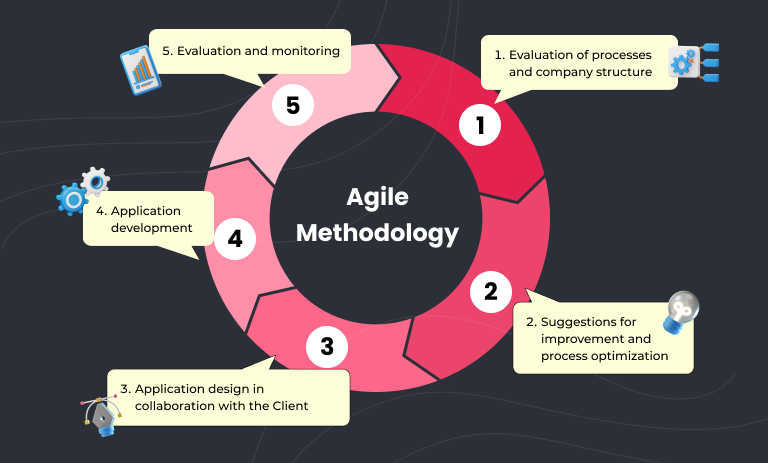The Role of a Software Development Company in Today’s Digital Landscape
In the fast-paced world of technology, software development companies play a crucial role in driving innovation and digital transformation across industries. These companies are the backbone of modern businesses, providing tailored solutions to meet the ever-evolving needs of their clients.
Customized Solutions for Diverse Needs
Software development companies specialize in creating custom applications, websites, and software products that cater to a wide range of requirements. Whether it’s developing a mobile app for a startup or implementing an enterprise-level system for a large corporation, these companies have the expertise to deliver solutions that align with their clients’ goals.
Embracing Cutting-Edge Technologies
Keeping up with the latest technologies is essential for software development companies to stay competitive. From artificial intelligence and machine learning to blockchain and IoT, these companies leverage cutting-edge tools and frameworks to create innovative solutions that drive business growth and efficiency.
Collaboration and Agile Practices
Collaboration is at the core of software development companies’ operations. Cross-functional teams work together using agile methodologies to ensure seamless communication, rapid iterations, and timely delivery of projects. This collaborative approach enables these companies to adapt quickly to changing requirements and deliver high-quality solutions.
Continuous Learning and Improvement
Software development is an ever-evolving field, with new technologies emerging regularly. To stay ahead of the curve, software development companies invest in continuous learning and skill development for their teams. By fostering a culture of innovation and knowledge sharing, these companies ensure that they can tackle complex challenges and deliver cutting-edge solutions to their clients.
Conclusion
In conclusion, software development companies play a vital role in shaping the digital landscape by providing customized solutions, embracing new technologies, fostering collaboration, and promoting continuous learning. As technology continues to advance at a rapid pace, these companies will remain key drivers of innovation and transformation across industries.
Top 5 Advantages of Partnering with a Software Development Company
- Customized solutions tailored to specific business needs.
- Access to cutting-edge technologies and expertise.
- Ability to scale projects based on requirements and timelines.
- Collaborative approach for efficient project management.
- Continuous learning and innovation to stay ahead in the industry.
Key Challenges Facing Software Development Companies: Investment, Deadlines, Talent, Scope Creep, and Security Risks
- High initial investment in technology and infrastructure
- Tight project deadlines leading to potential burnout among developers
- Challenges in recruiting and retaining top talent in a competitive market
- Risk of project scope creep impacting timelines and budgets
- Dependency on third-party tools and libraries, which may introduce security vulnerabilities
Customized solutions tailored to specific business needs.
Software development companies excel in providing customized solutions that are meticulously tailored to meet the specific needs of businesses. By closely collaborating with clients to understand their unique requirements, these companies can develop software applications, websites, and systems that address specific challenges and opportunities faced by each organization. This personalized approach ensures that the solutions delivered not only align with the business goals and processes but also enhance efficiency, productivity, and overall performance, ultimately leading to a competitive edge in the market.
Access to cutting-edge technologies and expertise.
Software development companies offer a significant advantage through their access to cutting-edge technologies and expertise. By staying abreast of the latest tools, frameworks, and trends in the industry, these companies can deliver innovative solutions that drive business growth and efficiency. Their teams of skilled professionals possess the knowledge and experience needed to leverage these technologies effectively, ensuring that clients receive high-quality, future-proofed software products that meet their evolving needs. This access to cutting-edge technologies and expertise sets software development companies apart as valuable partners in navigating the ever-changing digital landscape.
Ability to scale projects based on requirements and timelines.
Software development companies offer a significant advantage in their ability to scale projects according to specific requirements and timelines. Whether a project needs to be expanded to accommodate additional features or streamlined to meet tight deadlines, these companies have the expertise and resources to adjust the scope and size of a project accordingly. This flexibility ensures that clients can effectively manage their project goals and deliverables without compromising on quality or efficiency.
Collaborative approach for efficient project management.
A key advantage of software development companies is their collaborative approach to project management, which enhances efficiency and ensures successful project outcomes. By fostering open communication and teamwork among cross-functional teams, these companies are able to streamline processes, address challenges proactively, and deliver projects on time and within budget. This collaborative mindset promotes idea sharing, problem-solving, and a shared sense of ownership, ultimately leading to the development of high-quality software solutions that meet the unique needs of clients.
Continuous learning and innovation to stay ahead in the industry.
Software development companies prioritize continuous learning and innovation as a key strategy to stay ahead in the industry. By encouraging their teams to upskill, explore new technologies, and embrace innovative practices, these companies ensure they are equipped to tackle the ever-evolving challenges of the digital landscape. This commitment to ongoing learning not only enhances the expertise of their workforce but also enables them to deliver cutting-edge solutions that meet the dynamic needs of their clients. Embracing a culture of continuous improvement allows software development companies to remain at the forefront of innovation and maintain a competitive edge in the rapidly changing tech industry.
High initial investment in technology and infrastructure
One significant drawback of engaging with a software development company is the high initial investment required for technology and infrastructure. Developing custom software solutions often necessitates specialized tools, software licenses, hardware upgrades, and infrastructure setup, all of which can incur substantial costs. For businesses operating on limited budgets, this financial barrier to entry can pose a challenge and may deter them from pursuing innovative digital solutions that could otherwise enhance their operations and competitiveness in the market.
Tight project deadlines leading to potential burnout among developers
Tight project deadlines in software development companies can often lead to potential burnout among developers. The pressure to deliver projects on time and meet strict timelines can result in long working hours, increased stress levels, and a lack of work-life balance for developers. This constant sense of urgency and the need to meet tight deadlines can take a toll on the mental and physical well-being of developers, impacting their productivity and overall job satisfaction. It is essential for software development companies to prioritize the well-being of their team members, implement realistic project timelines, and provide adequate support to prevent burnout and ensure sustainable work practices.
Challenges in recruiting and retaining top talent in a competitive market
In the competitive landscape of the software development industry, one significant challenge that companies face is recruiting and retaining top talent. With high demand for skilled professionals in technology, finding and keeping talented individuals can be a daunting task. Competition among companies to attract the best developers, designers, and engineers is fierce, leading to talent shortages and increased turnover rates. To address this conundrum, software development companies must offer competitive salaries, opportunities for career growth, a positive work culture, and ongoing training to retain their top performers in an ever-evolving market.
Risk of project scope creep impacting timelines and budgets
One significant con that software development companies face is the risk of project scope creep, which can have a detrimental impact on timelines and budgets. Scope creep occurs when additional features, requirements, or changes are introduced throughout the project without proper evaluation or control. This can lead to delays in project completion, increased resource allocation, and ultimately exceeding the initial budget allocated for the project. Managing and mitigating scope creep is essential for software development companies to ensure projects stay on track and meet client expectations within the agreed-upon timelines and budgets.
Dependency on third-party tools and libraries, which may introduce security vulnerabilities
One significant drawback of software development companies is their reliance on third-party tools and libraries, which can potentially introduce security vulnerabilities into the products they create. While these tools and libraries are often essential for streamlining development processes and adding functionality, their use also poses a risk of exposing the software to security threats. In some cases, these third-party components may have vulnerabilities that hackers can exploit, leading to data breaches or system compromises. Therefore, software development companies must carefully vet and monitor the tools they integrate into their projects to mitigate the risks associated with dependency on external resources.




